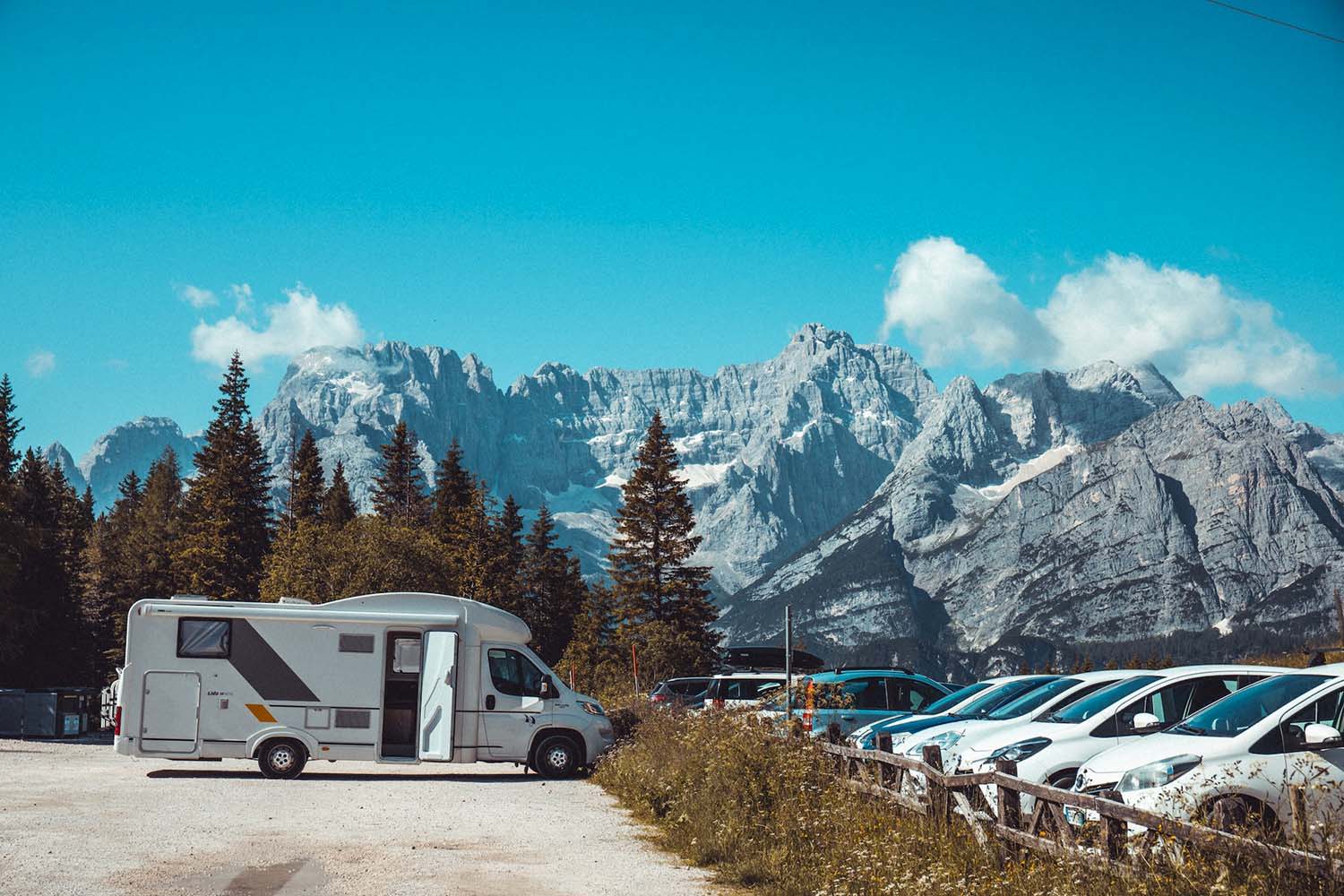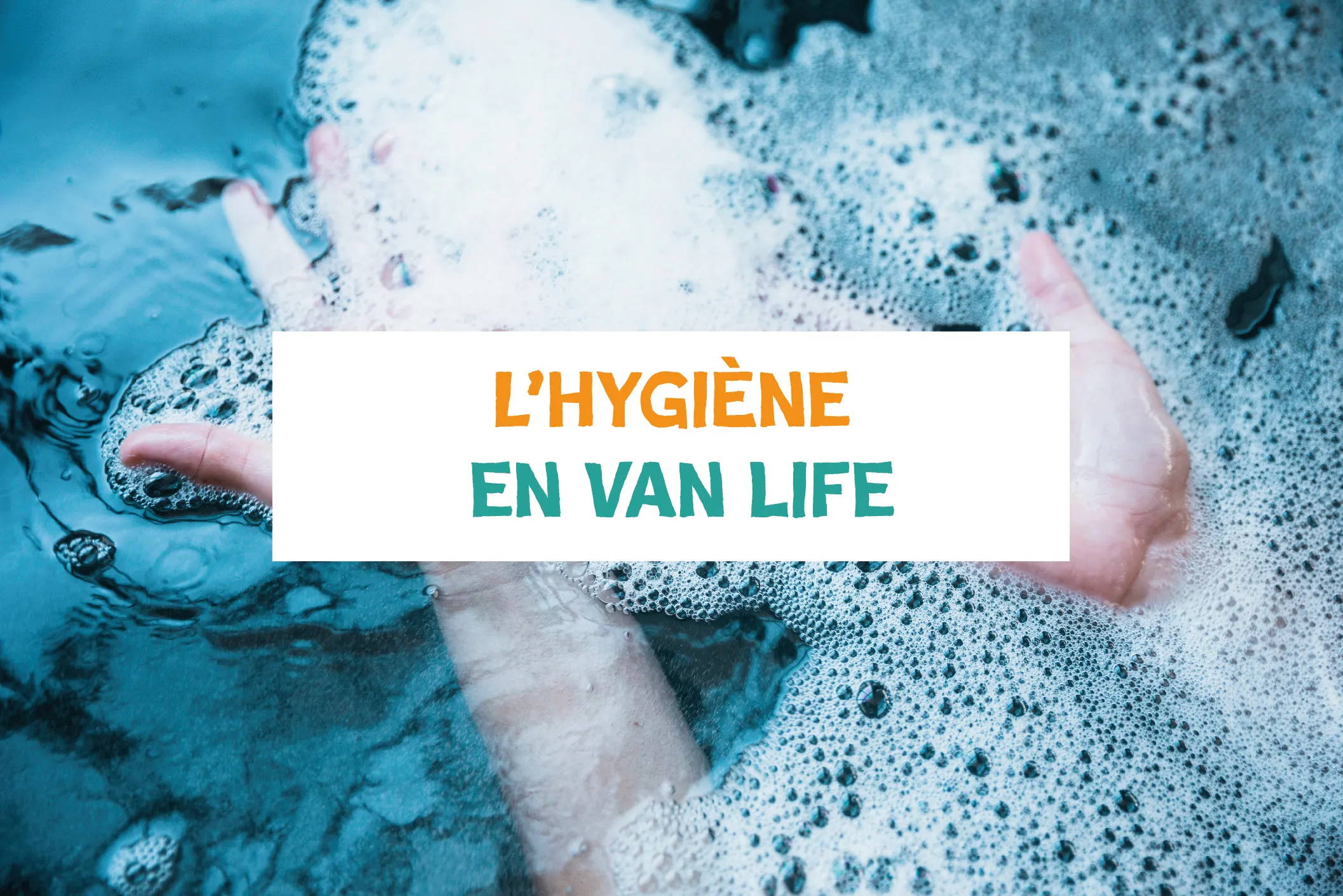Sleeping in the car:
What does the law say?
Set off on an adventure, travel the roads of France and the world, stop wherever you like to wake up to a magnificent landscape... Freedom! Until you get a knock on your window asking you to leave the parking lot at 3.00 am. Ouch. This is the situation that many vanlife enthusiasts dread! So how can you avoid being tricked and make sure you're camping in authorized areas? And what does the law actually say about sleeping in your car? Tchao Tchao gives you a quick rundown on the regulations you need to know when you're on a vanlife trip!
Vanlife : prohibitions to be aware of
Traffic signs
We're all familiar with those famous signs prohibiting the parking of motorhomes. Sometimes with good reason, as there is a special parking area for them. Sometimes just to avoid the potential nuisance of people camping out. Even in a converted car, you can be baffled by such a sign: "Am I allowed to sleep in my car here? In fact, there is absolutely no legal ban on sleeping in your car in France. So most of these signs are actually illegal! So, can you sleep in your car in these no-sleeping areas? Well, barring other statutory exceptions, which we'll look at next, normally yes! But the reality is more complex. Even though these signs are not legal, that doesn't stop tickets from being issued. Of course, it's always possible to appeal. But it's even harder to be proven right! So if you're planning to sleep in your car or van, be sure to check the parking signs beforehand to avoid any unpleasant surprises! Some signs directly prohibit the parking of any vehicle at a given time or on a given day, or even indefinitely.
Parking and sleeping in a converted car
Other regulations prohibit you from parking your car. For example, you're not allowed to park if your van, camper or converted car exceeds the demarcation limits, obstructs traffic or, worse still, creates a potential hazard. You're also entitled to park in the same space for a maximum of 7 days. Beyond that, you could be fined for illegal parking. Finally, many natural parks prohibit camping by car, or even parking. It's essential to find out in advance what is and isn't allowed in the natural area you wish to visit. However, it's much easier to find a place to sleep in a converted car than in a camper van, as most parking spaces are accessible by car, unlike camper vans, which often have to use special parking areas.

Camping in a converted car
While there's no law against sleeping in your car in France, you can't camp just anywhere. Indeed, camping in unauthorized areas is considered illegal and punishable by fine. If you can sleep in your car in a conventional parking space, unfortunately you won't be able to camp there. But what do we really mean by camping? A person is considered to be camping in his or her car if, for example, he or she puts out a table next to it, erects an awning or raises the pop-up roof of his or her car or converted van. On the other hand, although this law applies everywhere, it is very rarely respected in motorhome parks, where even the authorities turn a blind eye and let travelers enjoy their stay. So you can generally camp in your car or van at a motorhome park. Last but not least, despite all the fantasies you've had about your vanlife adventure, it's very often forbidden to build campfires. If you really want to, find out about the specific regulations of the place where you're camping before you light the fuse, because the fine can be very high!
Camping by car: best practices
There's a reason why so many prohibition signs are appearing. Many residents and elected representatives are unhappy about the waste and nuisance associated with bivouacs. So, to preserve as much as possible the places where it's possible to camp by car, it's essential to respect the area and its inhabitants. Here are a few tips to follow when camping by car, to avoid any problems and to camp respectfully:
- Collect your garbage and dispose of it in the appropriate garbage cans if possible, or take it with you. Or opt for zero waste in vanlife, so you don't have to worry about it!
- Don't play loud music or make too much noise, especially after a certain hour.
- If you don't have a toilet nearby, go out into a remote area and dig a hole where no one can see it, and not near footpaths or houses. Dispose of toilet paper in garbage cans rather than burying it or leaving it out in the open.
- Drain wastewater in designated areas
- Respect the surroundings: make even less noise if the area is very quiet, don't stick to other vehicles even if it's busy, pay attention to the various infrastructures, respect the surrounding vegetation, etc.
Now you know all the main regulations and what the law says about sleeping in a car. Normally, it's no more difficult to park or camp in a car than in a converted van, as the rules are the same in both cases. In doubt? Don't hesitate to ask local residents and authorities what you can and can't do! In most cases, they'll be delighted to help you, and can even recommend some great places to sleep in your car in complete peace of mind. If you can't find a suitable spot, it's always possible to camp by car or van in designated areas such as campsites, homestays or service areas, which are often moderately well-funded. This article deals with the law on sleeping in cars in France, but bivouac regulations vary from country to country! So make sure you find out about the laws in the country or countries you want to visit by car or van before you set off on your road trip!




